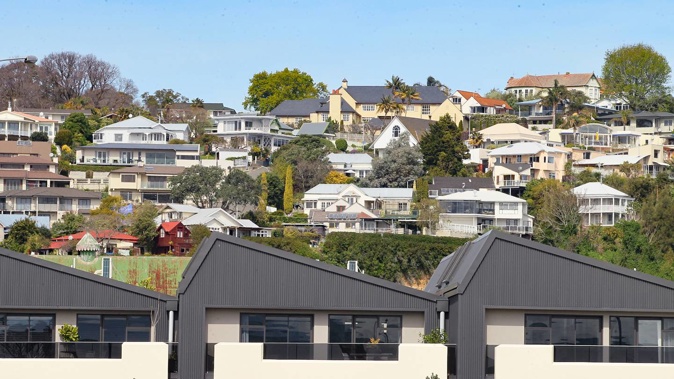
Some tenants in properties owned by Trust House could be facing an up to 100 per cent increase in rent as of April.
The organisation’s chief executive Charles Kaka acknowledged the proposed rent increases were significant but support was being made available for those tenants affected to ensure they were aware of their entitlements.
Trust House would be sending out letters and has allowed 60 days for tenants to be able to have conversations with government agencies on what assistance they can get.
Kaka said the increases were necessary as not only was much of their housing stock getting older and needed improvements but also to help cover increases in costs and to correct historical under-charging.
There had been little to no change in the past few years to rentals.
“Historically rents have been exceedingly low,” Kaka said.
/cloudfront-ap-southeast-2.images.arcpublishing.com/nzme/HVYAEJESNCXJVAEWJK6SNRSJSQ.jpg)
Historically, rents through Trust House had been low. Photo / Dean Purcell
Rents ranged from as low as $170 a week but with the increases, a rental for a one-bedroom property was likely to be around $400 a week.
OneRoof market insights stated that the median rent for a one-bedroom dwelling was $255 per week for Dannevirke.
- Citizens Advice Bureau: Benefit increases could be eaten up by raised rents
- Twyford won't say how new rental changes will affect rents
- Government urged to change stance on rent freezes, tenancy agreements
While data for a one-bedroom house was not available through Tenancy Services it was stated that the median rent for a two-bedroom in Dannevirke was $345 per week.
However, Trust House asset manager Alan Adye-Rowe said that this was because it was based on historical data and that the lower rents charged by Trust House had “artificially distorted the rental market”.
The community-owned company had taken a blanket approach in the increases, based on location and size, and used a combination of market rent information and data on private rentals through the Ministry of Business, Innovation and Employment and TradeMe.
“Tenancy Services gives us a good indication of the market. However, the figures published by MBIE are constructed on historical data,” Adye-Rowe said.
He said Trust House influenced the Wairarapa and Tararua District rental markets, due to the sheer volume of rentals they owned.
There were 96 properties owned by Trust House in the Tararua District, with around two-thirds of them in Dannevirke, out of 482 in total.
Around 60 per cent of tenants qualified for the Government’s income related rent subsidy (IRR) which limited their contribution to 25 per cent of their income.
However, the IRR was no longer available to those sitting tenants who were not already part of the scheme.
Which meant around 40 per cent of tenants would be affected by the change.
Kaka said the organisation had worked with government departments, which included the Ministry of Housing and Urban Development, Kainga Ora and the Ministry of Social Development, over the last year on the rent increases to ensure it was all above board and to offer support to those affected tenants.
It was understood that MSD would be communicating with its clients to go over their entitlements and provide assistance where possible.
“We do accept there will be a proportion of tenants who won’t have any entitlements,” Kaka said.
Some of the funds from the increases would go towards a $50 million improvement programme to lift the properties “to where I would like them to be,” he said.
Trust House was also working to grow its housing stock with several new builds either under way or in the pipeline.
MSD regional commissioner Blair McKenzie said the government agency would do whatever it could to support people affected by the rent increases.
“We know it can be very stressful for people struggling to find a suitable and affordable home.”
Clients of MSD who were Trust House tenants and facing rent increases would be contacted so staff could arrange a time to meet with them to check if they were receiving their full entitlements and what additional support could be provided.
Anyone else who was affected was encouraged to contact MSD.
MSD offers an accommodation supplement to those on a low income and every town, city and rural area across Aotearoa fell into one of four accommodation supplement areas, based on market rents.
Dannevirke came under area four, which meant for a single person with no dependents, the maximum they could receive under current rules was $70.
McKenzie said the amount depended on several factors including income, assets, accommodation costs, family circumstances and where they lived.
People who needed additional support to help meet essential living costs might also qualify for temporary additional support.
Take your Radio, Podcasts and Music with you









